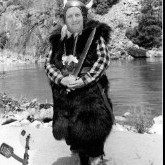I Want To See What Minelab & Garrett Is Bringing To The Table
-
Similar Content
-
- 25 replies
- 976 views
-
- 6 replies
- 385 views
-
- 42 replies
- 5,336 views
-
- 7 replies
- 13,899 views
-
- 21 replies
- 49,154 views
-
- 5 replies
- 1,290 views
-
-









Recommended Posts
Create an account or sign in to comment
You need to be a member in order to leave a comment
Create an account
Sign up for a new account in our community. It's easy!
Register a new accountSign in
Already have an account? Sign in here.
Sign In Now